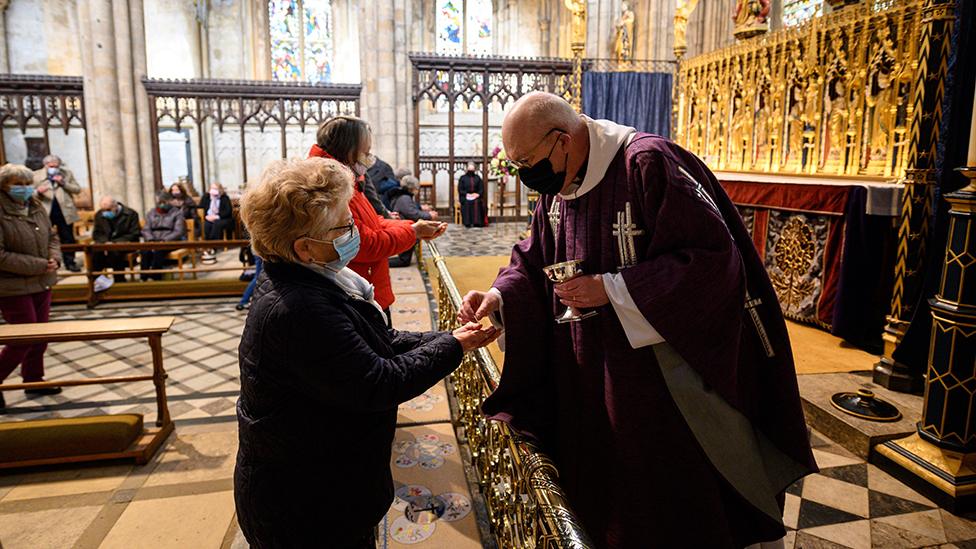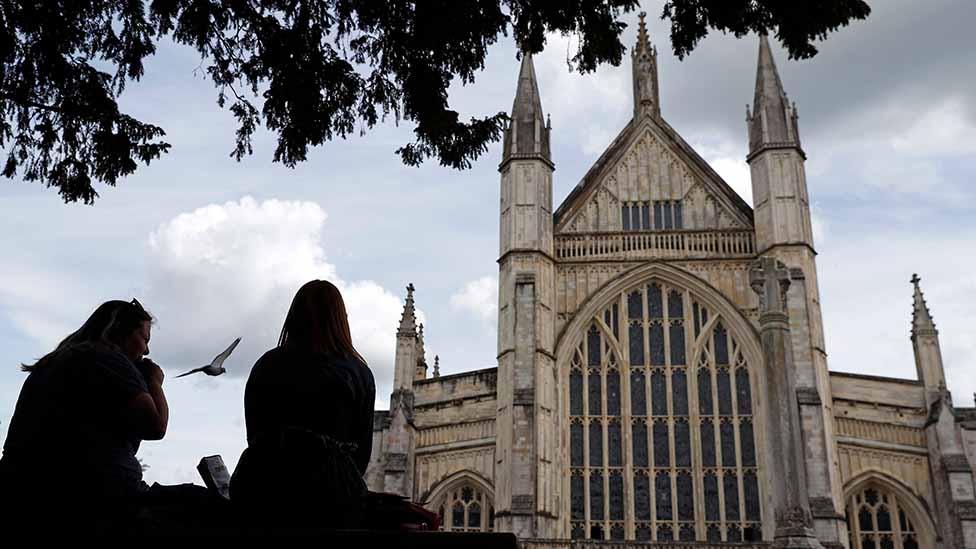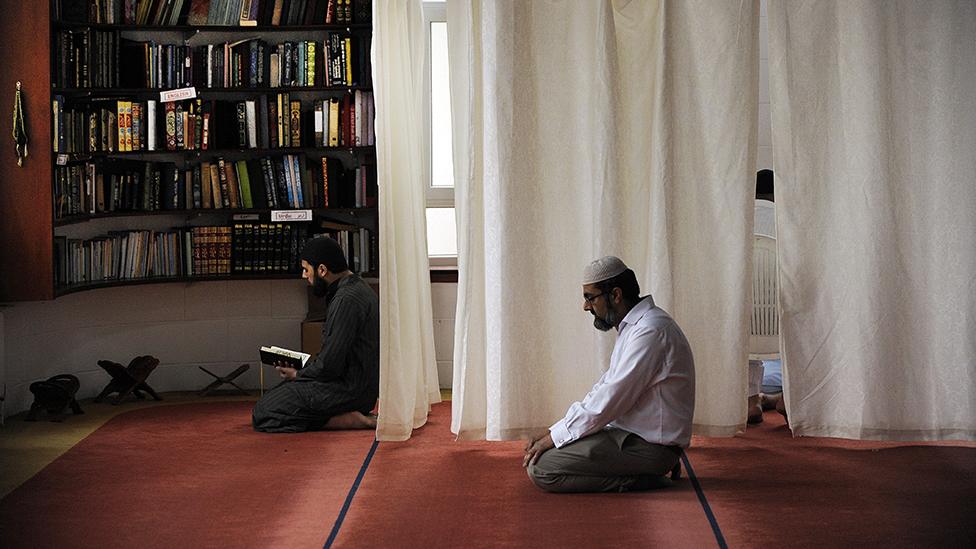Coronavirus: What are the rules for places of worship?
- Published

Easter, Passover, Ramadan and Vaisakhi all fall within the month of April, so it's an important month across different faiths.
And with lockdown being relaxed across the UK, more places of worship are now open - but there are still changes to worshippers' usual practices.
What are the current rules?
A number of common measures are in place across the UK:
Services should be carried out in the shortest possible time - to ensure safety and minimise infection spread
Worshippers should wear a face mask and keep a 2m (6ft) distance from anyone not from their own household or support bubble
People must not mingle with anyone not in their own household or support bubble, and should be "encouraged to move on promptly" afterwards
If shoes are removed before a service, people should avoid touching other people's footwear
Items such as prayer mats, service sheets, religious texts or hymn books should not be shared - worshippers should bring their own and then take them home
If people can't bring their own books, places of worship can offer a selection for individuals to use, but these should be quarantined for 48 hours before and after use
Those giving and receiving food and drink in a service must observe strict precautions
Spoken responses from worshippers should be uttered softly, and there should be no communal singing or chanting indoors to reduce the risk of transmission
What are the rules in England?
In line with government guidance,, external acts of communal worship have continued throughout the winter in churches, synagogues, mosques, gurdwaras, temples and meeting rooms.
The number allowed at any service is determined by a risk assessment on the building where it is held.
A single small group of singers is now allowed to perform but only where it's essential to an act of communal worship, and with social distancing maintained at all times.
Communal singing should not take place indoors, but a congregation outdoors may join in, as long as they follow social distancing rules.
No more than 30 people are allowed to attend funerals.
Weddings and civil partnership ceremonies can now take place with six people attending. From 12 April (at the earliest), 15 people will be allowed to attend wedding ceremonies, and from 17 May (at the earliest), this number will rise to 30.
At that point, other "life cycle" ceremonies - such as baptisms or bar mitzvahs - will be allowed to take place with 30 attendees.
What are the rules for worship in Wales?
Communal services can be held in places of worship (but they are not currently allowed outdoors).
Marriages, civil partnerships, alternative wedding ceremonies and funerals are allowed. The number who can attend is determined by the size and layout of the building.
Organised groups of no more than six singers are allowed to take part in services. Congregations are not allowed to join in the singing.
Groups of musicians are also allowed, but they are not allowed to play wind instruments, and are advised to use pianos or electronic instruments.
Supervised children's activities such as Sunday schools and madrassas are not permitted.

What are the rules for worship in Scotland?
Places of worship have now reopened for communal services across Scotland.
The limit on attendance is 50 - as long as 2m social distancing can be maintained within a building. Life ceremonies may be held as long as they also comply with these rules.
Wedding ceremonies are allowed with a maximum of five people (including the couple).
Funerals can take place with a maximum capacity of 20 attendees.
Most Scottish isles are under level three restrictions, external, and wedding ceremonies with a maximum of 20 people (including the couple) are also allowed.
From 26 April, up to 50 people will be able to attend weddings and funeral ceremonies throughout Scotland.

Worshippers at Dundee Central Mosque
What are the rules for worship in Northern Ireland?
Northern Ireland's main Christian denominations chose to suspend in-person gatherings in January.
The Catholic Church has now resumed services, and the Church of Ireland, Methodist and Presbyterian Churches in Northern Ireland will follow suit from Good Friday (2 April).
Marriages and civil partnerships ceremonies are limited to 25 people. This includes children under 12 and the celebrant. A risk assessment is required if more than 15 people are attending.
Funerals are limited to 25 people.

A SIMPLE GUIDE: How do I protect myself?
AVOIDING CONTACT: The rules on self-isolation and exercise
HOPE AND LOSS: Your coronavirus stories
LOOK-UP TOOL: Check cases in your area
